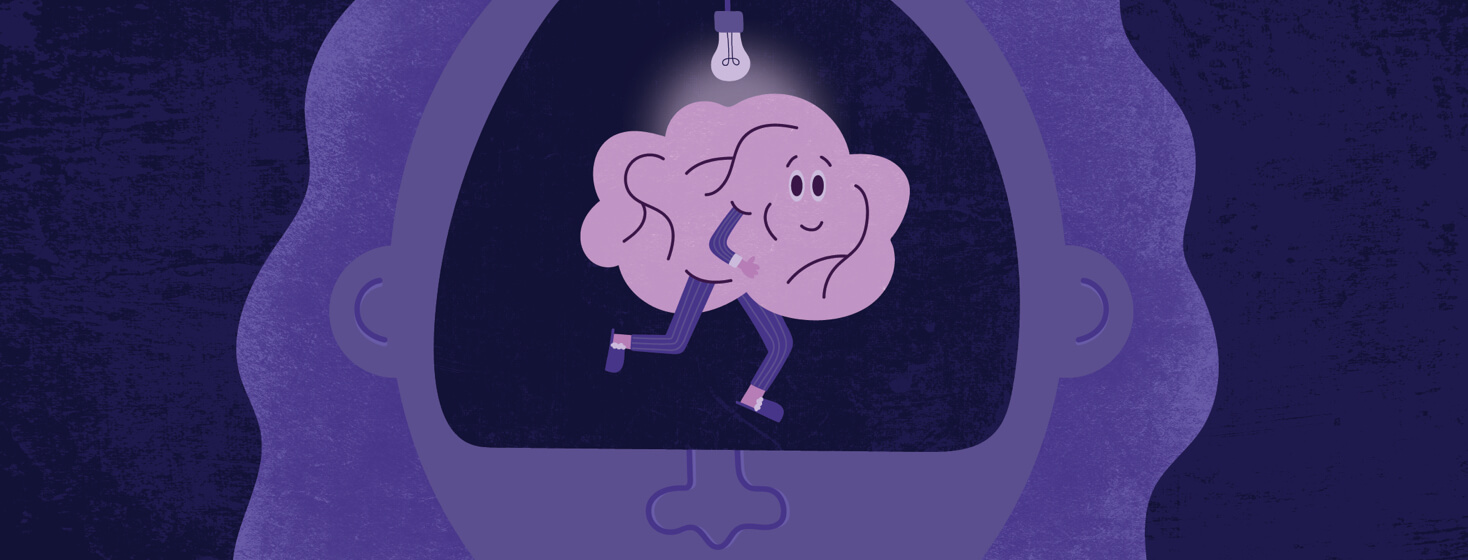My Restless Brain – RLS and Insomnia
It's 2 AM, your legs are finally calm, and you need to get some sleep. But instead, you're tossing and turning and maybe thinking about what color to paint the laundry room.
For many people, restless legs syndrome (RLS) and insomnia go hand in hand. It's a double whammy and like some sort of cruel joke. You would think with all the missing hours of sleep you've accumulated during the week, you should drift into slumber the moment your head hits the pillow. Not so fast...
The roles of adenosine and glutamate
We've known for some time that the transport of dopamine and iron stores plays a role in RLS. But a recent study found that low levels of adenosine receptors (a chemical in the brain which regulates neurochemicals) lead to abnormally high levels of glutamate and dopamine.1
Glutamate is associated with wakefulness. This may be an underlying cause of both periodic limb movement disorder (PLMD) and hyperarousal in RLS.1
This study was an "Aha" moment for me. It made some sense of what was going on in my restless brain.
To sleep or not to sleep?
I don't know if how I experience insomnia is common among those with RLS. I had always assumed that because of RLS, I'd just never learned to fall asleep normally. But on reflection, I realize that it is more than that for me. I've never understood when people would say how tired they were in the evening and that they were going home and straight to bed. That is a foreign concept to me.
Yes, during the day, I often feel exhausted. Come nighttime, though, the last thing I want to do is go to bed. My brain tells me it's a good time to go for a jog, hang wallpaper, do my taxes. Anything to avoid going to bed. It doesn't matter how little sleep I may be running on. My brain says, "You do not want to go to bed."
Avoiding bedtime is nothing new
As a child, I used to rearrange my bedroom furniture in the middle of the night. During sleepovers, my friends thought it hilarious that my parents didn't mind me cooking burgers and fries at 3 AM (they were used to it). I'm sure my family was happy when plug-in headphones became a thing, and I could just sit in my rocking chair and listen to music all night long.
Anything seemed better than the loneliness of tossing and turning in bed all night long. I don't know how much of that was RLS and how much was insomnia. Probably a combination of both.
Sensory overload when I close my eyes
When I close my eyes at night, my brain becomes like an abstract newsreel. Flashing random pictures, conversations, taglines I've never heard before. They aren't my memories or worries. It's as though someone has put together a montage of footage from a variety of media, from every era. None of these things are familiar to me, and I can make no sense of what I'm seeing or hearing.
A horse and cart go by, a couple chatting in a cafe, one sentence on repeat from an advert I don't know — each image lasting only a moment before we're on to the next thing. As hard as I try to redirect my brain to think my own thoughts, I can't catch a break from these relentless images and sounds. It leaves me feeling disturbed and exhausted.
Calming my brain
Years ago, my doctor agreed that sleep medication is likely the best option for me to deal with my insomnia. Of course, this isn't helpful when my RLS is acting up. But most nights, I fall asleep quickly and feel rested in the morning. My brain is still determined to convince me that I can't possibly go to bed before 2 AM, and it usually wins.
This will probably be a lifelong battle. I do some stretches, facial relaxation exercises, and try to think positive thoughts as my head hits the pillow. At least my mind is calm enough to do that now. Hopefully, research in the future will bring more answers as to why so many of us with RLS also suffer from insomnia.

Join the conversation